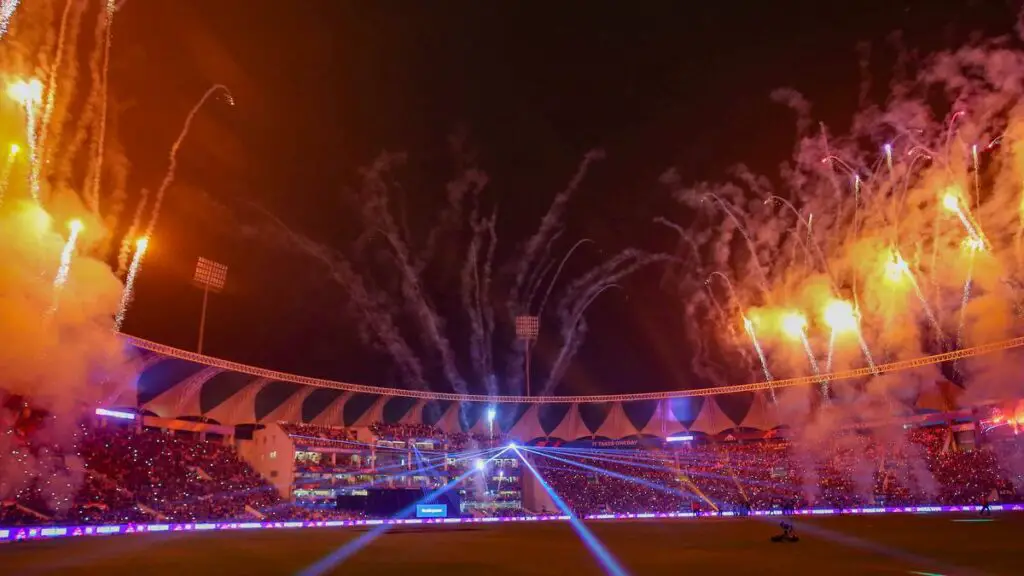Fireworks Banned in Delhi and Mumbai Due to Worsening Air Quality
The Board of Control for Cricket in India (BCCI) has decided to ban the display of fireworks during the remaining World Cup games in Delhi and Mumbai. This decision is a response to the deteriorating air quality in these two mega cities.
BCCI’s Commitment to Environmental Concerns
The decision to ban fireworks in Delhi and Mumbai was announced by BCCI secretary Jay Shah on Wednesday. In a statement, Shah emphasized the BCCI’s commitment to combating environmental issues and prioritizing the health and safety of fans and stakeholders. He stated that he had formally raised the matter with the International Cricket Council (ICC), and the decision was made to prevent a further increase in pollution levels in Mumbai.
Delhi’s Last Match and Mumbai’s Remaining Fixtures
Delhi has only one match left to host, which is the game between Bangladesh and Sri Lanka on November 6. On the other hand, Mumbai is scheduled to host two more league games on November 2 and November 7, as well as the semifinal on November 15.
Dire Air Quality in Delhi and Mumbai
The decision to ban fireworks in Delhi and Mumbai is a response to the urgent concern surrounding the air quality in both cities. Delhi’s air quality has remained in the “very poor” category for the fifth consecutive day with an air quality index (AQI) of 372. The pollution situation in Mumbai is equally alarming, as expressed by the Bombay High Court, which took suo motu cognizance of the deteriorating air quality index in the city.
Importance of Environmental Responsibility
The BCCI’s decision to ban fireworks during the World Cup games demonstrates its commitment to environmental responsibility. The board recognizes the significance of addressing air pollution and seeks to contribute to combating this issue. By prioritizing the health and safety of all stakeholders, the BCCI sets an example for the role cricket can play in raising awareness about environmental concerns.
It is crucial to note that the ban on fireworks in Delhi and Mumbai is a temporary measure taken specifically for the World Cup games. The BCCI acknowledges the celebratory nature of the ICC World Cup and aims to host the tournament in a manner befitting the spirit of cricket. However, the current focus is on safeguarding the well-being of the players and spectators, as well as addressing the environmental challenges these cities face.
Hyperlinks to Relevant Websites
For more information on air quality index and pollution levels, visit the AirNow website. To learn about the International Cricket Council’s initiatives for sustainability and environmental responsibility, visit the ICC Sustainability webpage.
In Conclusion
The BCCI’s decision to ban fireworks during the remaining World Cup games in Delhi and Mumbai highlights its commitment to environmental concerns. By taking this step, the board aims to mitigate the impact of air pollution and prioritize the health and safety of all stakeholders involved in the tournament. As Delhi and Mumbai continue to face challenges in terms of air quality, it is essential for organizations like the BCCI to play an active role in addressing these issues and promoting sustainable practices.

